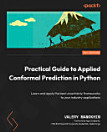Interoperating Geographic Information Systems
Michael Goodchild · Max J. Egenhofer · Robin Fegeas · Cliff Kottman
Dis 2012 · The Springer International Series in Engineering and Computer Science Buku 495 · Springer Science & Business Media
e-Buku
509
Halaman
reportRating dan ulasan tidak disahkan Ketahui Lebih Lanjut
Perihal e-buku ini
Geographic information systems have developed rapidly in the past decade, and are now a major class of software, with applications that include infrastructure maintenance, resource management, agriculture, Earth science, and planning. But a lack of standards has led to a general inability for one GIS to interoperate with another. It is difficult for one GIS to share data with another, or for people trained on one system to adapt easily to the commands and user interface of another. Failure to interoperate is a problem at many levels, ranging from the purely technical to the semantic and the institutional.
Interoperating Geographic Information Systems is about efforts to improve the ability of GISs to interoperate, and has been assembled through a collaboration between academic researchers and the software vendor community under the auspices of the US National Center for Geographic Information and Analysis and the Open GIS Consortium Inc. It includes chapters on the basic principles and the various conceptual frameworks that the research community has developed to think about the problem. Other chapters review a wide range of applications and the experiences of the authors in trying to achieve interoperability at a practical level. Interoperability opens enormous potential for new ways of using GIS and new mechanisms for exchanging data, and these are covered in chapters on information marketplaces, with special reference to geographic information. Institutional arrangements are also likely to be profoundly affected by the trend towards interoperable systems, and nowhere is the impact of interoperability more likely to cause fundamental change than in education, as educators address the needs of a new generation of GIS users with access to a new generation of tools. The book concludes with a series of chapters on education and institutional change.
Interoperating Geographic Information Systems is suitable as a secondary text for graduate level courses in computer science, geography, spatial databases, and interoperability and as a reference for researchers and practitioners in industry, commerce and government.
Interoperating Geographic Information Systems is about efforts to improve the ability of GISs to interoperate, and has been assembled through a collaboration between academic researchers and the software vendor community under the auspices of the US National Center for Geographic Information and Analysis and the Open GIS Consortium Inc. It includes chapters on the basic principles and the various conceptual frameworks that the research community has developed to think about the problem. Other chapters review a wide range of applications and the experiences of the authors in trying to achieve interoperability at a practical level. Interoperability opens enormous potential for new ways of using GIS and new mechanisms for exchanging data, and these are covered in chapters on information marketplaces, with special reference to geographic information. Institutional arrangements are also likely to be profoundly affected by the trend towards interoperable systems, and nowhere is the impact of interoperability more likely to cause fundamental change than in education, as educators address the needs of a new generation of GIS users with access to a new generation of tools. The book concludes with a series of chapters on education and institutional change.
Interoperating Geographic Information Systems is suitable as a secondary text for graduate level courses in computer science, geography, spatial databases, and interoperability and as a reference for researchers and practitioners in industry, commerce and government.
Berikan rating untuk e-Buku ini
Beritahu kami pendapat anda.
Maklumat pembacaan
Telefon pintar dan tablet
Pasang apl Google Play Books untuk Android dan iPad/iPhone. Apl ini menyegerak secara automatik dengan akaun anda dan membenarkan anda membaca di dalam atau luar talian, walau di mana jua anda berada.
Komputer riba dan komputer
Anda boleh mendengar buku audio yang dibeli di Google Play menggunakan penyemak imbas web komputer anda.
eReader dan peranti lain
Untuk membaca pada peranti e-dakwat seperti Kobo eReaders, anda perlu memuat turun fail dan memindahkan fail itu ke peranti anda. Sila ikut arahan Pusat Bantuan yang terperinci untuk memindahkan fail ke e-Pembaca yang disokong.











